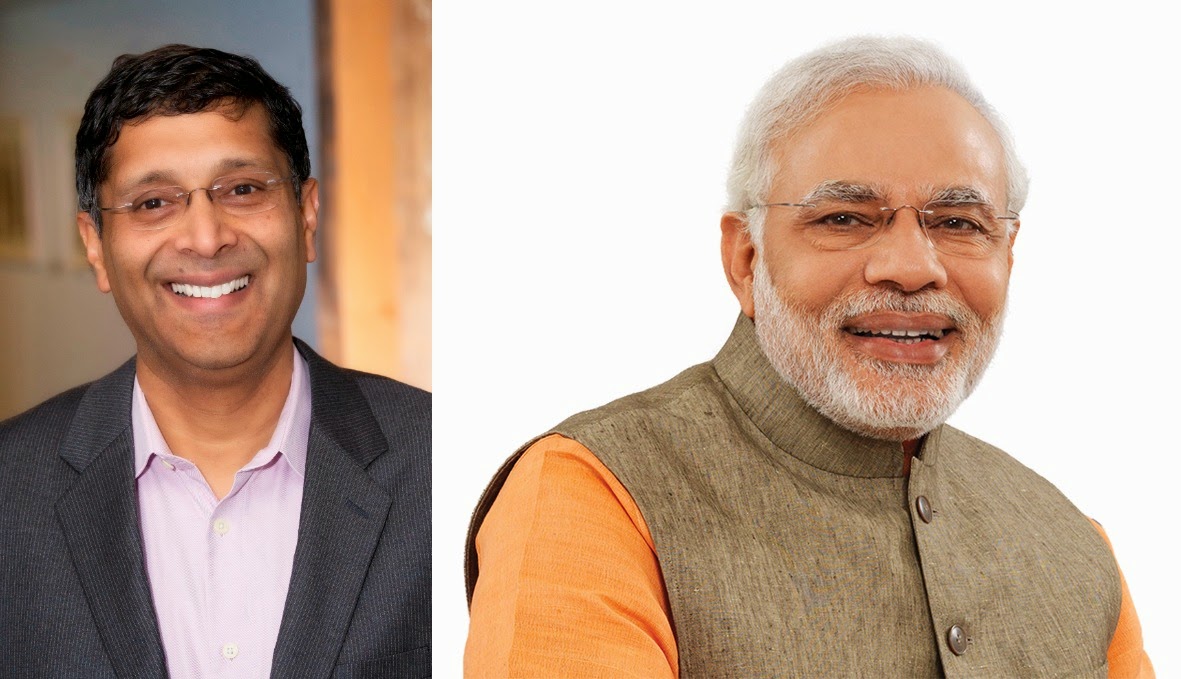Source: http://www.portwings.in/editorial/modi-needs-a-better-economic-advisor/
Editorial in Port Wings, April 15, 2015:
While the Prime Minister Narendra Modi exuding great confidence among the countrymen at every available forum, be it a corporate-sponsored meetings or through his Mann Ki Baat, that the mess created by previous governments in New Delhi will be cleared and indeed a new era will dawn soon, his chief economic advisor Arvind Subramanian, the US-based thinker roped in by Sudhesi-loving BJP Government, speaks exactly opposite to his views.
Recently, Subramanian was in Chennai and where he emphatically said that the big bang reforms are frankly not applicable to a country like India as there was multiple veto centres, multiple decision making centres and was very difficult to pass through a decisive change.
Though Narendra Modi, after being elected to lead the world’s largest democracy about a year ago, announced that his government will walk the talk on economic reforms and put the country on fast track, the open admission by his economic advisor clearly demonstrates that either both were not in ideological sync or fooling around the countrymen with double speak.
Ever since Narendra Modi appointed Arvind Subramanian to the post, there were murmurs in the corridors of power that the BJP-led government too following the same principles of Congress and totally relying on imported economists, someone who does not know the ground realities of the sprawling country.
And those murmurs are being proved right every time of late when Arvind Subramanian speaks about the economic status of the country in public forums.
It is an open secret that the previous Manmohan Singh-led Congress Government had multiple power centres and because of that the decisions on several important policies, including the economic reforms, were unable to culminate in the best interest of the country.
Well, Indians voted the Congress government out of power and brought the BJP Government after its PM Nominee Narendra Modi assured that there won’t be any such setup in the new government and it will prosper on the lines of Sabka Saath, Sabka Vikaas.
However, the promise of weeding out such unscrupulous setup seems to be lost in transition or kept in abeyance as his economic advisor still speaking about the existence of multiple veto centres in the country.
If one read between the lines, the latest outburst clearly demonstrates that nothing has changed than change of government in New Delhi.
The continuation of Arvind in the economic advisor post despite different views suggests that Narendra Modi like the way he was working.
The previous Manmohan Singh-led Congress Government had advisors, again imported from United States of America, and those experts decided the economic policies of India, which has diversified system and patterns.
Manmohan Singh’s advisors had even failed to gauge the living conditions of poor countrymen and emphatically boasted for the corporate sector and decided pro-corporate policies which ultimately led to the downfall of the Congress Government.
Traditionally, the chief economic adviser is responsible for feeding the Prime Minister about the prevailing economic conditions and suggests steps to be taken.
The admission by advisor tells a different story that Narendra Modi is still unable to overthrow the legacy of Congress.





